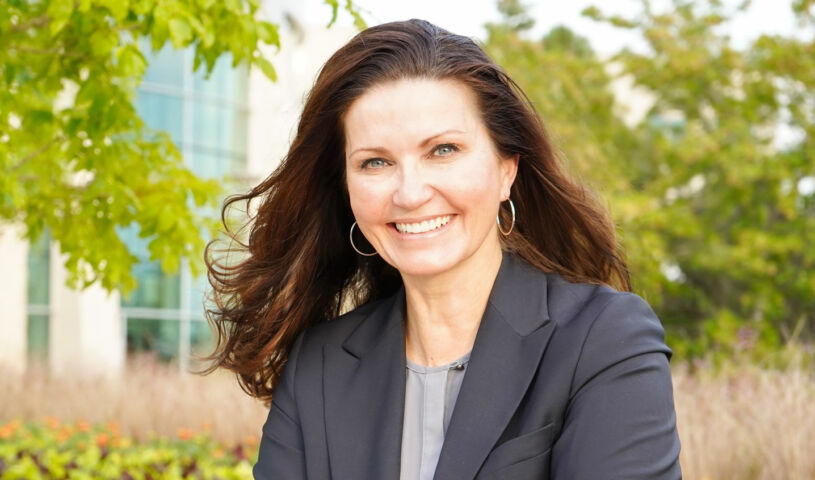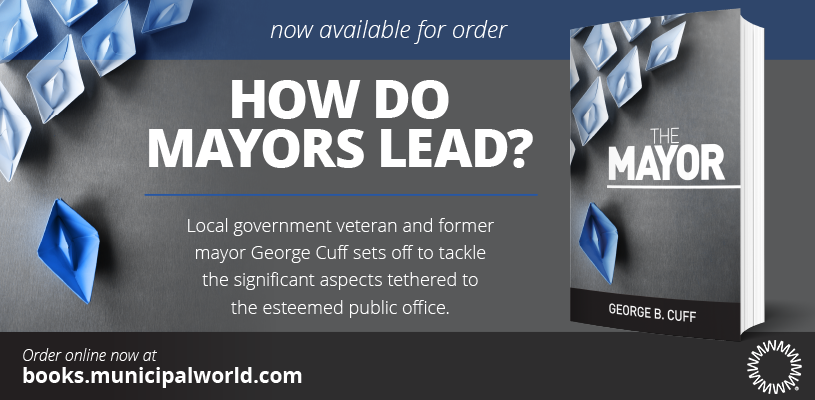Mayor Sandra Masters: Running to address unfinished business
 For several years now there has been a clear trend of incumbent mayors from across the country choosing not to run for re-election. Sandra Masters, elected as Regina’s first woman mayor in 2020, is bucking this trend. Photo: Sandra Masters Facebook
For several years now there has been a clear trend of incumbent mayors from across the country choosing not to run for re-election. Sandra Masters, elected as Regina’s first woman mayor in 2020, is bucking this trend. Photo: Sandra Masters Facebook
For several years now there has been a clear trend of incumbent mayors from across the country choosing not to run for re-election. This has been the case for several years now and 2024 is shaping up to be no different.
That said, Sandra Masters is bucking this trend. Masters was sworn in as Regina’s 35th mayor in 2020, becoming the first woman elected to the role. It was also her first time serving in elected office.
Earlier this year, Masters announced she would be running again with a clear message for the residents of Regina – she’s not finished yet.
“I would say mission not yet accomplished. I think would be some of the phrasing,” Masters said. “I was saying to some folks in the community last month, it actually feels like we have a bunch of organizations doing amazing work, some private, some not-for-profits, and finally I feel like everybody’s kind of got the sense of we’re all going in the same direction, trying to build on the same thing.”
Masters announced her decision in March, but the decision may well have been made several months before.
Last Christmas, Masters recalls a conversation with her four adult children about running again. There were some questions, but a lot of support. Her daughter, who is the oldest, was supportive but cautioned if her mother was sure of her decision. Her oldest son summed things up quickly with a very matter of fact, “Of course you are.”
But another reason stems from something Masters learned while participating in the Bloomberg Harvard City Leadership Initiative.
“They talk about the calls to public service and why people run, and you got to find your why,” Masters said. “And my why is as strong as ever.”
Why Stay When Others Go?
The support helped asway any trepidation Masters may have had about running again. But that’s not to say she doesn’t understand the obstacles in her way. She also fully understands when colleagues – such as Saskatoon Mayor Charlie Clark – decide to walk away.
Masters said she hasn’t met a municipal mayor for whom elected office “doesn’t mean everything.” But, that said, she agrees family will always come first.
But she also believes in term limits, too. Masters points to Clark’s decision, who not only had his time as mayor, but his time on council as well. By the time the municipal election comes around, Clark will have been on council for 18 years.
Masters said it’s important to know when to pass the baton to keep momentum moving. But she also recognizes there is a human element to serving as well.
“I’ll talk about Charlie for a minute. There’s a guy that gave his heart and soul to it. Always trying to do the right thing, trying to do the best thing,” Masters said. “Agree with him, don’t agree with him, I never questioned the man’s intentions. So, when he says, okay, I’m going to tap out, I think it’s completely understandable. And in some regards saying make room for the next person. If you’re doing it for the right reasons, it’s not about having the job, it’s about doing the job.”
Local Government Today
Masters said she believes deeply in local government. For one thing, when sitting with members of the public, whether you agree with their positions or not, Masters said there is a strength of conviction to deal with the issues that need to be dealt with.
This also presents opportunities for elected officials to sit down with staff, with the public, gather all the necessary information, and make the best decision possible.
While Masters embraces that part of community interaction, she is quick to point out the part she doesn’t pay attention to – social media.
Masters doesn’t read social media. It’s just a commitment she has made to herself. She has talked to other mayors who do the same, who don’t even have passwords for their accounts. She will use it to promote city activities, city information, but she doesn’t read the comments because it often just isn’t helpful.
There are also the pressures that come through the seemingly escalating amount of harassment that local officials.
Sometimes, Masters said, it is a conversation. Perhaps this person is mad at me, let’s have a conversation with this person or this group. When conversations can be had face to face, solutions can often be worked out.
Unfortunately, elected officials these days must be prepared for those who may not want to find a compromise.
“I know, it’s a very polarized environment right now because you’re either with people or you’re against people. I just refuse to get sucked into it,” Masters said. “There is an energy level that is required and a recommitment often to where is my approach playing into the problem. You have to reflect on that. And where would communication help and where do we just need to give some folks time out?”
First Term Reflections
As she approaches the end of her first term, Masters gets a little philosophical.
Masters said she believes that in life everything is based on relationships and chemistry. There’s a balance of chemistry that exists. Sometimes it’s toxic, sometimes it’s incredibly favorable. But it is essential to build those relationships.
With that in mind, Masters said she is “really proud” of the relationship the city has been able to connect and build with both the federal and provincial governments, as well as the organizations that influence policy direction that can assist a city like Regina.
Tapping into resources that are far beyond municipal boundaries is key, Masters said. That is reflected in some of the funding and programming Masters said council has been able to achieve in the last three and a half years.
Masters said it is “fundamentally, foundationally important” for a municipality to play to its strengths. For Regina, Masters said that strength is people. Everybody wants to be better, to improve, to grow, she said. As such, the city needs to create opportunities for residents.
Masters said Regina “will never be Vancouver and Toronto,” and that’s OK. So, investing in amenities like an indoor aquatics center, the water and the wastewater for both housing and an industry, and park space are important. But also essential is a focus on accessibility and inclusiveness. And Indigenous Peoples and culture is also an important part of the conversation.
Another big piece, Masters said, was improving city operations. And that was probably the part Masters admits took the longest to figure out. It was key to break down where the city has issues and the kind of incremental improvement the community is looking for.
But the biggest problem, as her colleagues across the country will attest, is a municipal funding system based in Confederation.
“A lot of the income that the provincial and federal governments collect in income tax and other fees is generated within our municipalities. But we are stuck with what I call the rigid system of property tax,” Masters said. “When that system was created, there were no buses, there was no public transit. And so, it’s those types of things where I don’t think it’s caught up. To support the people who are earning the income that is funding the other levels of government, I think we need a better answer to some of this. I’m happy to advocate for that.”
Looking Ahead to Tomorrow
Whether it is questions of fiscal efficiency, or a new model for municipal funding, dollars and cents are only some of the questions a mayor must deal with. There is housing and homelessness, mental health supports, public safety, and any other number of so-called wicked problems.
But all that said, Masters is eager to return to her office after the next election. But that does ask the question of why she wants to go through all the things that make the job of mayor a challenge that so many are stepping away from.
The easy answer might be that Masters calls being the mayor “the coolest thing I’ve ever done.” But she also recognizes it is “also the most unbelievably frustrating thing I’ve ever done in my life.” And given she raised four kids, that’s saying something.
But the privilege of meeting people who are trying to make a difference, who employ people, who are artists, who are trying to live their life while making the world a better place, is the privilege of office that most people don’t get to see.
“We have our challenges. Not everything’s perfect. Not everybody’s going in the way that we hope they’d go. But still, it’s a really wonderful thing,” Masters said. “I’ve got two granddaughters and I know a whole bunch of what I’m doing, I will not live to see. I will not live to enjoy. But it’s the idea that you can go by a park or you can go by a building or you could go by some kind of innovation and say, yeah, I had a part in that decision. It’s an amazing thing.” MW
✯ Municipal World Executive and Essentials Plus Members: You might also be interested in Sean Meyer’s article: Local government champions look ahead to new experiences.
Sean Meyer is digital content editor for Municipal World.
Related resource materials:



